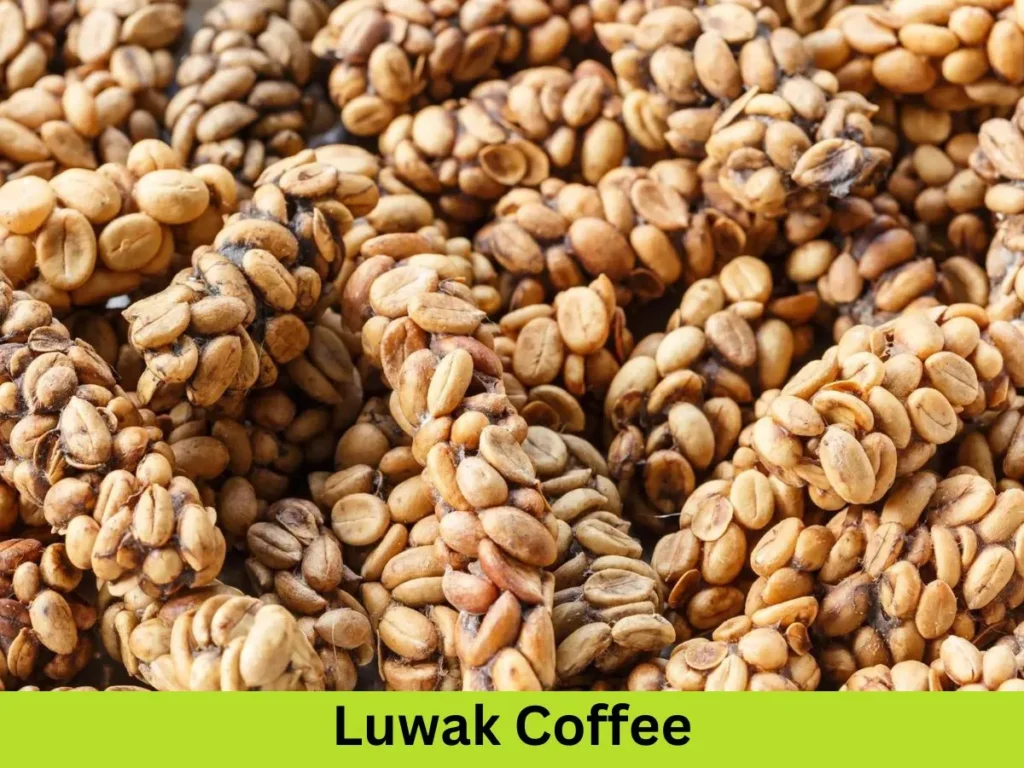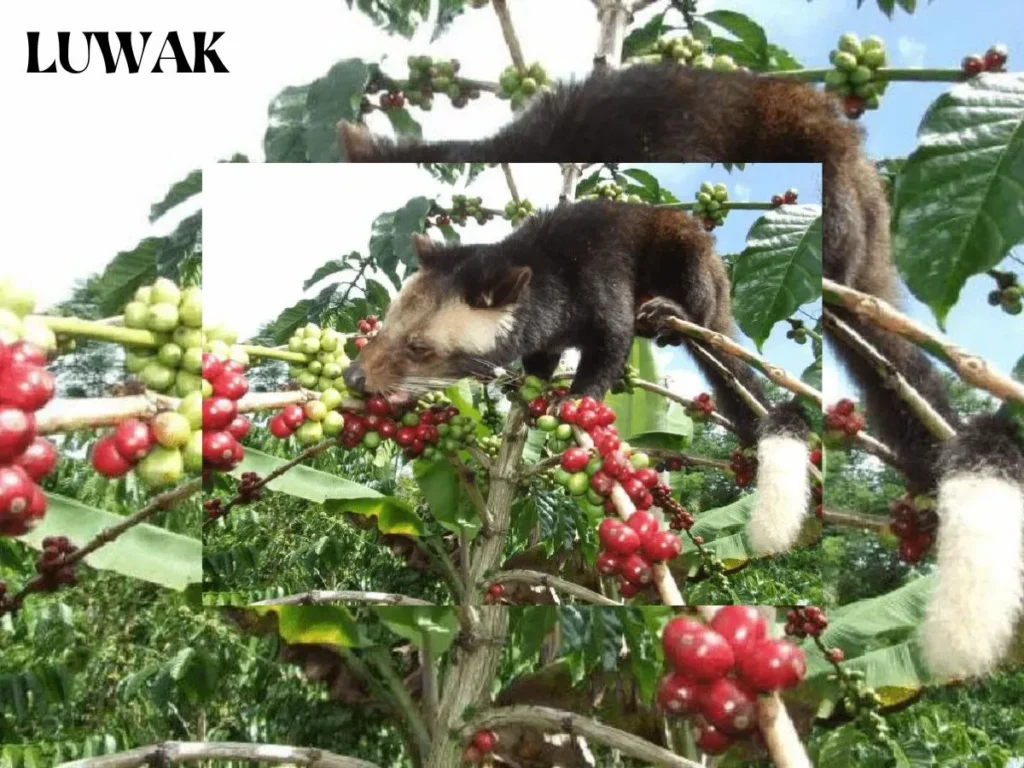Table of Contents
ToggleLuwak Coffee: The Controversial Cup
Luwak coffee, also known as civet coffee, is shrouded in mystery and controversy. This unique coffee boasts an exotic origin story and a hefty price tag, but is it worth the hype? This article delves deep into the world of luwak coffee, exploring its production process, taste profile, ethical concerns, and alternatives.

From Civet to Cup: The Production of Luwak Coffee
The journey of Luwak coffee begins with the Asian palm civet, a nocturnal mammal found in Southeast Asia. These civets are attracted to the ripe coffee cherries of Coffea arabica plants, which they consume whole. Unlike humans, civets lack the enzymes to fully digest the coffee bean’s tough outer shell. As the cherries pass through the civet’s digestive system, a unique process takes place.
Some believe that the civet’s stomach enzymes break down certain proteins in the beans, contributing to a smoother taste. However, research suggests this enzymatic contribution is minimal. More likely, the civet’s digestive process removes some of the bitterness typically associated with coffee.
After excretion, the coffee beans are collected from the civet droppings. Here’s where the ethical concerns begin. Traditionally, farmers collected civet droppings in the wild. Today, however, a significant portion of luwak coffee comes from civets kept in captivity.
These captive civets are often housed in cramped and unsanitary cages. They may be force-fed an exclusive diet of coffee cherries, which can lead to malnutrition and health problems. The unnatural conditions can also negatively impact the quality of the beans.
The collected beans undergo a rigorous cleaning process to remove any remaining traces of civet matter. They are then sun-dried, roasted, and finally ground into coffee.
A Taste of Luxury: The Allure of Luwak Coffee
Proponents of Luwak coffee swear by its smooth, almost syrupy body and unique flavor profile. They describe it as less acidic and bitter than regular coffee, with subtle hints of chocolate, caramel, or even fruit. This distinctive taste is attributed to the civet’s digestion process, although as mentioned earlier, the science behind this is not entirely conclusive.
The rarity of authentic luwak coffee adds to its allure. Due to the time-intensive collection process and the limited number of civets involved, true luwak coffee fetches a high price. A cup of luwak coffee can range from $50 to $100, making it one of the most expensive coffees in the world.
A Bitter Truth: Ethical Concerns and Sustainability
The booming demand for Luwak coffee has led to unethical practices in its production. The rise of civet coffee farms raises serious concerns about animal welfare. Confining civets in cages and altering their natural diet can have detrimental effects on their health and well-being.
There are also environmental considerations. Large-scale civet farming can disrupt the ecological balance, as civets play a vital role in seed dispersal and forest regeneration. Furthermore, the high cost of Luwak coffee can incentivize deforestation to make way for civet enclosures.
These ethical and environmental issues have led many consumers to question the sustainability of Luwak coffee production.

Beyond the Civet: Alternative Options for Coffee Connoisseurs
If you’re an ethical coffee drinker seeking a unique and flavorful cup, fret not! Several high-quality, ethically sourced coffee alternatives exist. Here are a few to consider:
- Arabica beans: High-quality Arabica beans, the type most commonly consumed by civets, can produce a naturally smooth and flavorful cup when grown and roasted with care. Exploring single-origin Arabica beans from reputable sources allows you to experience the inherent qualities of the bean without the ethical baggage.
- Estate coffees: Estate coffees come from single farms known for their exceptional growing conditions and meticulous processing techniques. These coffees often boast unique flavor profiles and can be a great way to support sustainable farming practices.
- Wet-hulled coffees: The processing method used to remove the coffee bean’s outer fruit layer can significantly impact the flavor. Wet-hulling, a meticulous technique that preserves the bean’s delicate flavors, can result in a smooth and nuanced cup, similar to what some describe as characteristic of luwak coffee.
- Mongoose coffee: For those seeking an exotic coffee experience, mongoose coffee might be an option. Similar to civets, mongooses have a taste for coffee cherries. Mongoose coffee production is still relatively rare, but it offers a potential alternative that avoids the ethical concerns associated with civet coffee.
Ultimately, the choice is yours. By understanding the production process, ethical considerations, and alternative options, you can make an informed decision about the coffee you consume.